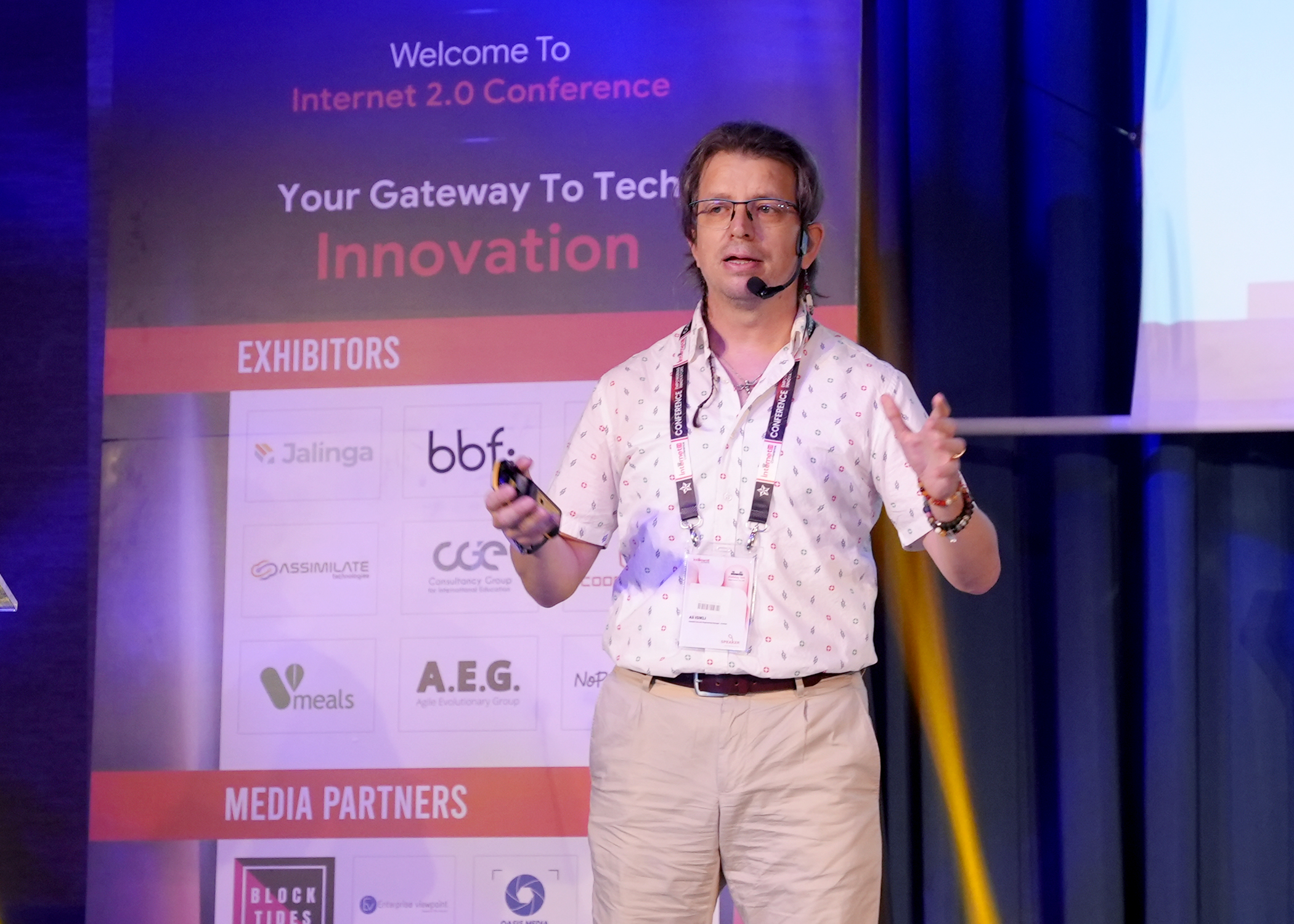
As we stand on the precipice of a new era, the world of work is undergoing a seismic transformation driven by a convergence of technological innovation, demographic shifts, and changing societal norms. In this era of unprecedented change, adapting to emerging trends requires both foresight and flexibility, crucial for individuals and organizations alike.
In this comprehensive exploration, you will delve into the key trends shared by the experts of the upcoming tech events in 2025, notably the Internet 2.0 Conference that are poised to shape the future of work in 2024 and beyond, offering insights and strategies to navigate this dynamic landscape successfully.
Table of Contents
Top Game-Changing Trends Reshaping Work In 2024
In 2024, the workplace landscape is undergoing a shift driven by technological advancements, societal changes, and evolving employee expectations. Here are a few game-changing trends highlighted by the experts of the upcoming IT conferences in the USA that reshaping work:
Remote Work Revolution
The COVID-19 pandemic has catalyzed a monumental shift in how we work, ushering in the era of remote work. However, what began as a temporary measure has evolved into a fundamental restructuring of the traditional office-based paradigm. Remote work is no longer viewed as a mere convenience but as a strategic imperative for attracting and retaining top talent. Organizations are investing in robust remote infrastructure and collaboration tools to enable seamless communication and productivity across distributed teams.
Artificial Intelligence And Automation
The automation and artificial intelligence impact is fundamentally altering the landscape of work, posing profound implications for industries and professions at every turn. AI-powered technologies are increasingly augmenting human capabilities, automating routine tasks, and unlocking new possibilities for innovation and efficiency. However, this technological revolution also necessitates a paradigm shift in workforce development, with a focus on upskilling and reskilling to equip individuals with the tools and expertise needed to thrive in an AI-driven economy.
Gig Economy Expansion
The gig economy continues to expand rapidly, offering individuals greater flexibility and autonomy in how they earn a living. In 2024 and beyond, we can expect to see a further proliferation of freelance and contract work arrangements as professionals increasingly seek alternative employment models that align with their lifestyle and career aspirations. According to the experts of the upcoming tech events in 2025, businesses are tapping into this talent pool to access specialized skills on demand, driving innovation and agility in an increasingly competitive market.
Focus On Employee Well-Being
In an age characterized by heightened sensitivity to mental health and overall well-being, employers are increasingly prioritizing the comprehensive wellness of their workforce. From implementing flexible work structures to providing robust mental health support and promoting inclusive company environments, organizations are actively promoting initiatives that build a culture of well-being and inclusivity. By dedicating resources to the welfare of their employees, businesses can nurture a workforce that is not only happier and healthier but also more committed and productive, thereby enhancing retention and overall organizational success.
Diversity, Equity, And Inclusion
Diversity, equity, and inclusion (DEI) have emerged as central tenets of corporate culture, driven by both moral imperatives and business imperatives. In the future of work, organizations must go beyond surface-level diversity initiatives to create environments where every individual feels valued, respected, and empowered to contribute their unique perspective. As per the insights of the IT conference experts in the USA, by embracing diversity in all its forms, businesses can unlock innovation, enhance decision-making, and build stronger, more resilient teams.
Rise Of Remote Collaboration Tools
With the proliferation of remote work, the demand for advanced collaboration tools has skyrocketed. In 2024, we can expect to see a wave of innovative technologies designed to facilitate efficient communication, streamlined project management, and seamless collaboration across distributed teams. From virtual reality meeting spaces to AI-driven collaboration assistants, these tools are transforming the way we work, enabling unprecedented levels of connectivity and productivity in a remote-first world.
Flexible Work Arrangements
As the traditional 9-to-5 workday evolves, flexible work arrangements are becoming increasingly prevalent, driven by the desire for greater autonomy and work-life harmony among employees. In the future, we’ll see a shift towards outcome-based performance metrics, where employees are evaluated based on results rather than hours logged at the office. Embracing options like compressed workweeks, job sharing, and sabbaticals, organizations are recognizing flexibility as a strategic necessity to both attract and retain top-tier talent in today’s fiercely competitive landscape.
Emphasis On Lifelong Learning
In a swiftly changing job market, the capacity to learn and pivot is of paramount importance. In 2024 and beyond, we’ll see a heightened emphasis on lifelong learning, with both employers and individuals investing in continuous skill development and education. From on-the-job training to online courses and micro-credentials, learning will become a lifelong pursuit, enabling individuals to stay agile and resilient in the face of technological disruption and economic uncertainty.
Hybrid Work Models
Hybrid work models, combining remote and in-person work, are emerging as flexible solutions that offer the best of both worlds. In 2024, we’ll see widespread adoption of hybrid work arrangements as organizations seek to balance the benefits of remote work with the value of in-person collaboration. By embracing hybrid work models, businesses can promote a culture of flexibility and innovation while also ensures that employees feel connected and engaged with their colleagues and company culture.
According to the thought leaders of the upcoming IT conferences in the USA, these trends are reshaping the future of work and demanding adaptability, innovation, and a human-centered approach from both employers and employees.
Conclusion
The future of work is evolving at an unprecedented pace, driven by a convergence of technological innovation, societal change, and shifting attitudes towards work and employment. According to the thought leaders of the Internet 2.0 Conference, by embracing these nine key trends—from remote work revolution to lifelong learning—individuals and organizations can position themselves for success in the dynamic and uncertain landscape of work in 2024 and beyond. By staying agile, adaptive, and forward-thinking, we can navigate the challenges and opportunities of the future with confidence and resilience. To learn more about the future trends and more related to technology, please check the conference agenda.





